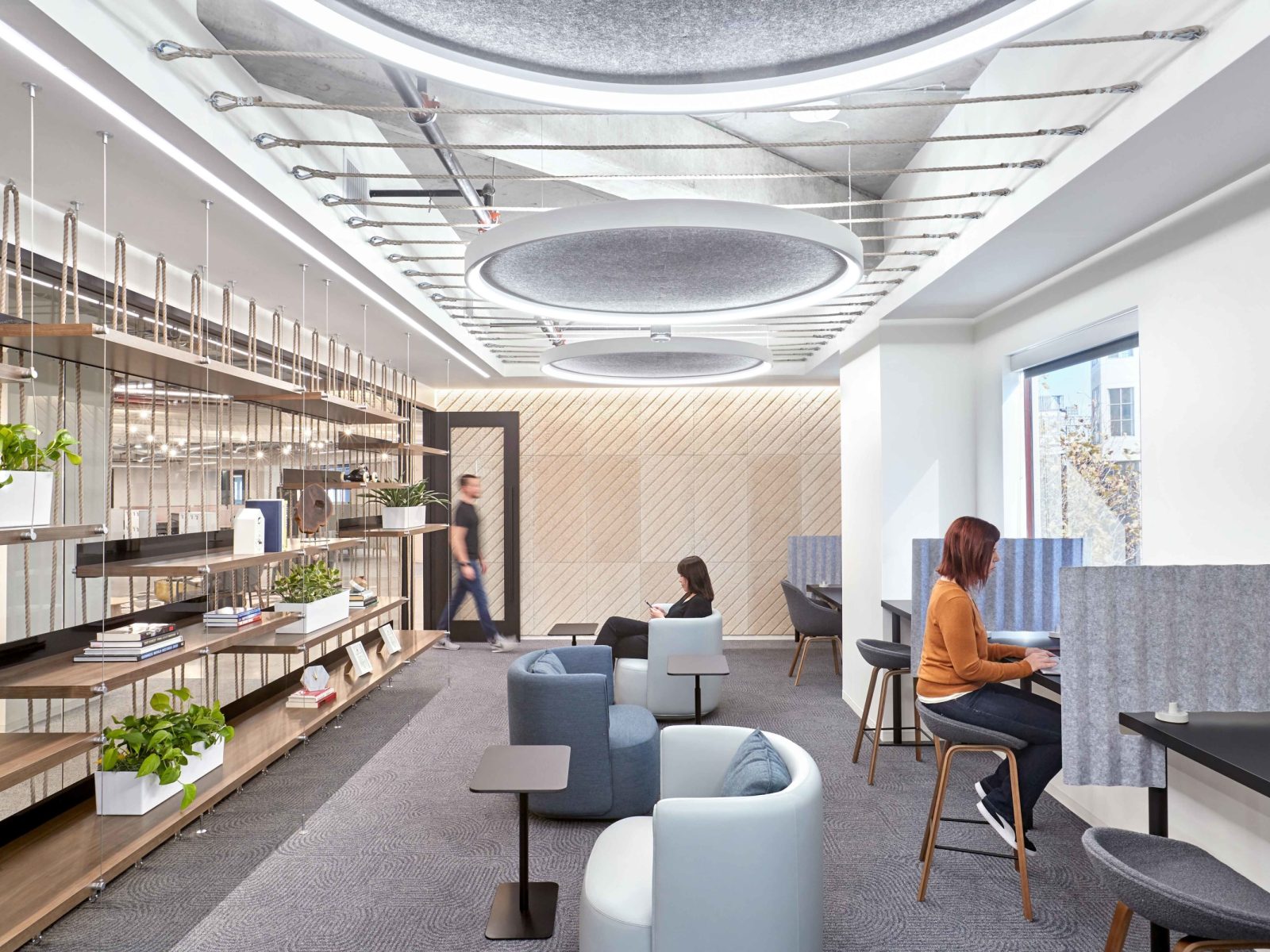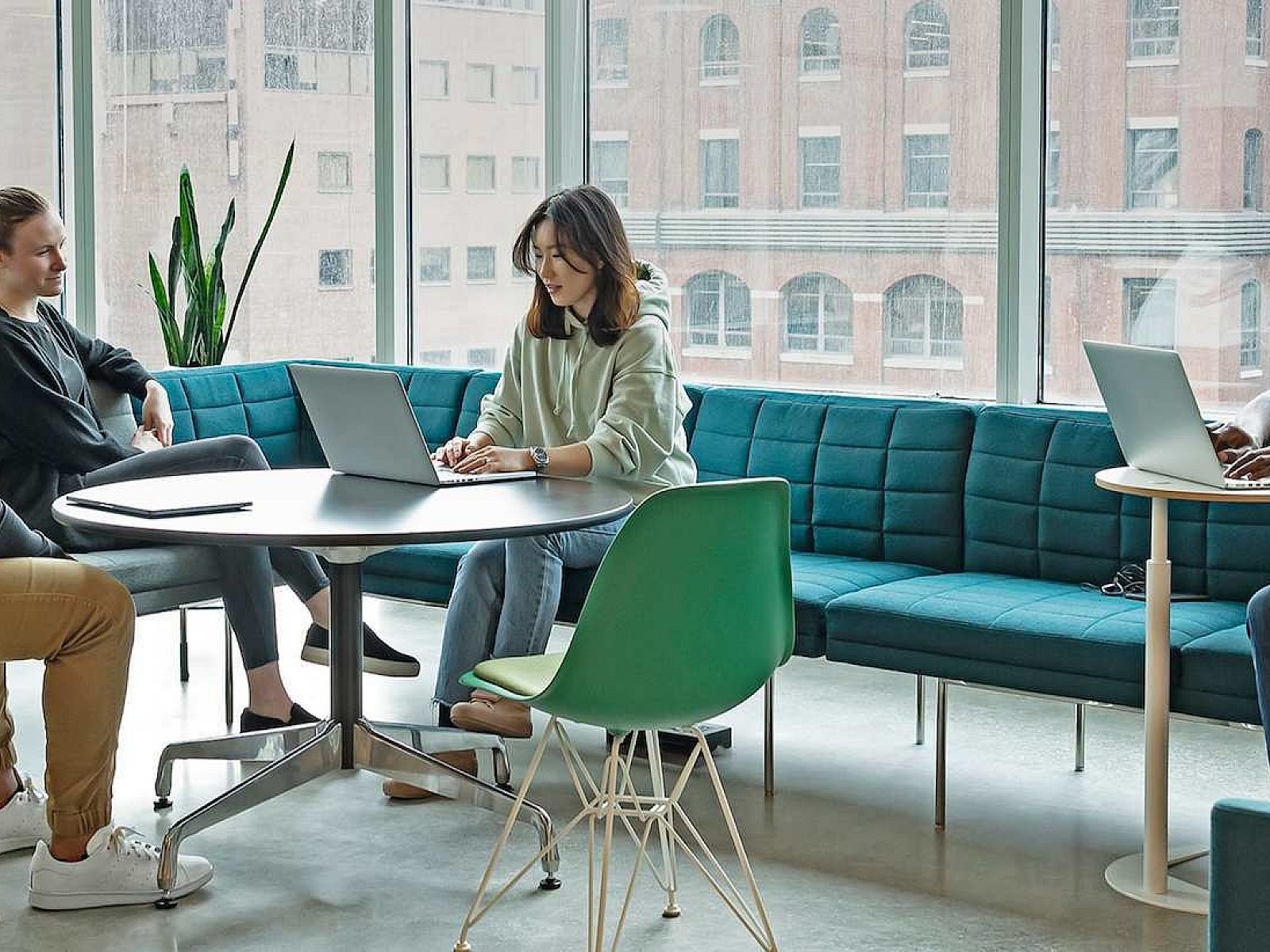Pivot Partners with Leesman
Pivot is proud to announce our new partnership with Leesman, a global firm focused on workplace research and insights.

Pivot recently partnered with Leesman, global workplace experience analysts. This partnership will serve a dual purpose: to first survey our own employees, beginning with a pilot conducted in our Santa Clara office, and then as an offering to our clients to gauge the effectiveness of the spaces we design.
“Our goal is to bring the best design and resources to our clients, but also to turn our focus inwards and continuously improve our spaces for our own people. The responses from Leesman surveys will help provide valuable insights and help to shape enhancements we make to our office space to better serve the needs of our employees – in essence, using our spaces as a test market for design strategy,” said Pivot Creative Director, Edward Woodill.
Leesman strives to understand the choices employees make about use of their workspaces – operative word, choice. As Leesman states, “if employees are offered a reasonable level of choice for when they use an office, their trips will increasingly have a particular purpose in mind.”
Understanding how our workspaces function, who we are really designing for and how they need to adapt are important questions as we evolve, post pandemic and beyond. As many of us have discovered over the last several years, leaving a bespoke home working environment to work in an office instead requires conscious decision making. In this regard, the Leesman survey has a unique purpose: It collects information on what and how well certain activities are supported not only by working from an office, but from home. This data analysis compares the two settings, and provides insight and answers into how we merge the best of both worlds with a workforce that is increasingly exercising the option to work hybrid - getting to the root of how and why individuals make the choice of where to work. The belief behind comparing work locations is that we adjust our design strategy to facilitate the full system of remote vs. in-office work, thus making our existing offices a better support for the hybrid work model.
Leesman has had more than one million office respondents – 1,030,077 to be exact, and 320,337 work-from-home respondents. This breadth of client responses allows for a strong baseline of data to benchmark as we design for our clients, and for our own people. The survey identifies critical discussion points, such as:
- How does our office space support each activity that is crucial to our job role and productivity?
- What does our office space offer that a home environment does not?
- How is collaboration and interaction supported through hybrid work?
- How satisfied are employees with their level of choice and freedom in the use of their space?


Data-Driven Design
“Our partnership with Leesman demonstrates how committed Pivot is to the design process. By utilizing the Leesman survey tool as an initial measurement instrument for metrics, namely, what employees need to be successful, we are more accurately able to predict and prepare for the ever-changing face of work at home and in the office,” said Edward Woodill, Pivot Creative Director.
According to Leesman survey responses from Q3 2021 to Q2 2022, approximately 83% of individuals are working in some type of hybrid model. Leesman researchers believe that future workspaces will be hubs for connection and resources, or a better experience, that they cannot get at home. If we are to create workplace programs to successfully support our employees (and creating experiences worth what, in many regions may be a hefty commute), this data is vital to shaping how we design and use space – including our Santa Clara headquarters, which has improvements coming in 2023. Pivot recently surveyed users of this space, which identified points to focus on in our design update.
“As we redesign our headquarters to incorporate space for a ‘sandbox’ to experiment and innovate with new products and settings, we are taking the opportunity to self-reflect and find out what our employees need from the workplace. Our goals are to improve technology promoting hybrid equity, delineate space for focused work, and inspire collaboration by providing spaces that allow our teams to make the office fit their needs,” said Jacqueline Menges, Senior Designer.
















